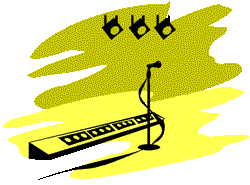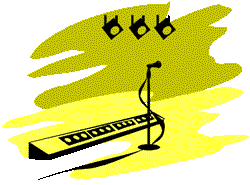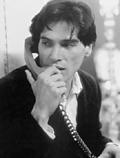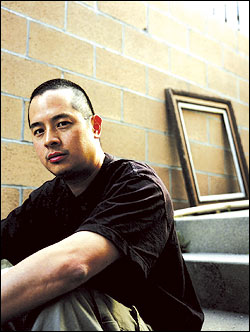Despite what I heard from many, many locals last year, Seattle doesn’t really have what is commonly referred to as “humidity.” Sure, it gets hot sometimes. There are even rare occasions when it approaches—gasp!—90 degrees. But on Tuesday, May 24, for about an hour, the temperature went way up, at least within the confines of Sonic Boom Records’ Capitol Hill location. The reason: Stephen Malkmus was playing an in-store.
I’d arrived early, at quarter past 5, to make sure I was positioned to see Malkmus and two members of his band, the Jicks, bassist Joanna Bolme and guitarist Mike Clark. It was fairly difficult navigating through the folks gathered in the aisles even then, but by 6:15 I was thirsty, wanting to look over the merch I’d just stocked up on, and heading across the street to get a quick iced tea. When I came back a half-hour later, the store was hideously overcrowded; when Malkmus, Bolme, and Clark went on, a couple minutes before the 7 p.m. start time, there were 75 or so people on the sidewalk, unable to get in. Halfway through the set, the store’s staff earned the outside throng’s applause for moving a display from in front of a bay window so they could see in.
“I’m getting hot, but I refuse to take off my coat up here, like a waiter at a fine restaurant,” Malkmus noted late in the six-song set. It opened with “Freeze the Saints,” from the new Face the Truth (Matador): Its melody lulled and rolled, despite a flubbed guitar note at the end of the first chorus; Malkmus’ falsetto was also rusty, but the tune opened up with a countryish guitar solo; the turnaround to verse was a handful of scratchy high notes that brings us back to something more recognizably indie-rockish; and he ended it with an agreeable mock-arena-rock flourish.
Malkmus’ introductions were as entertaining as the songs. Before “No More Shoes,” he noted, “This follows the last song we did on the vinyl but not the format that’s more popular these days.” He began “Malediction” by calling its title “a great word, and nice to say in a French accent. You can practice at home.” Near the end: “We’ve got time for a couple more, I think, people of the Capitol Hill area. This is called ‘It Kills.'” Pause. “It doesn’t, actually.”
In a quiet, agreeable way, it actually did, and so did the closer, a song left off the album that began, “Mr. Charlie, why the sour face/It can’t be as bad as that/You’d be dead already.” Its winsome tune and elegant, surprising chord turnarounds would have fit right in on Brighten the Corners or Wowee Zowee or Stephen Malkmus. Maybe next album.








